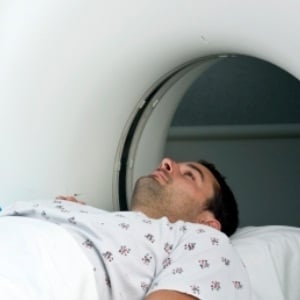
Brain scans could help identify comatose patients who have the potential to wake up, a new study suggests.
Bedside tests are currently the standard means of trying to assess whether or not a comatose person will make some form of recovery. But up to 40% of patients may be misdiagnosed using these methods, experts say.
In the new study, Belgian researchers looked at 41 patients who had suffered severe brain damage and were classified as being in a vegetative state, which means that they showed no evidence of awareness or response to stimuli.
Read: Brain scan identifies OCD
The patients underwent two types of scans: PET, with the imaging agent called fluorodeoxyglucose; and a scan called functional MRI, which tracks brain activity in real time.
Neurological processes
The PET scan showed greater potential in distinguishing conscious versus unconscious patients, according to the study published in The Lancet. One-third of the 36 patients who had been diagnosed as "behaviourally unresponsive" using the bedside tests showed brain activity on the PET scan that was indicative of some level of consciousness, the researchers said.
The research suggests that PET scans can detect neurological processes "that aren't visible through traditional bedside tests," lead researcher Steven Laureys, of the University of Liege, said in a journal news release.
He added that the scan might be a valuable addition to standard behavioural tests "to identify unresponsive or 'vegetative' patients who have the potential for long-term recovery".
Read: Brain scan reads your mind
Better methods needed
Expert commentators agreed that new and better methods of assessing consciousness are needed.
In patients with swelling of the brain, "prediction of outcome on the basis of standard clinical examination and structural brain imaging is probably little better than flipping a coin," Jamie Sleigh, of the University of Auckland in New Zealand, and Catherine Warnaby, of the University of Oxford in England, wrote in an accompanying journal commentary.
They said the new study "serves as a signpost for future studies" and also noted that this type of brain imaging is currently difficult and costly, "but it will almost certainly become cheaper and easier".
Read more:
Brain scans show leaps in science of comas
Brain scans show what pain looks like
Brain scan study suggests docs 'feel' your pain




 Publications
Publications
 Partners
Partners










